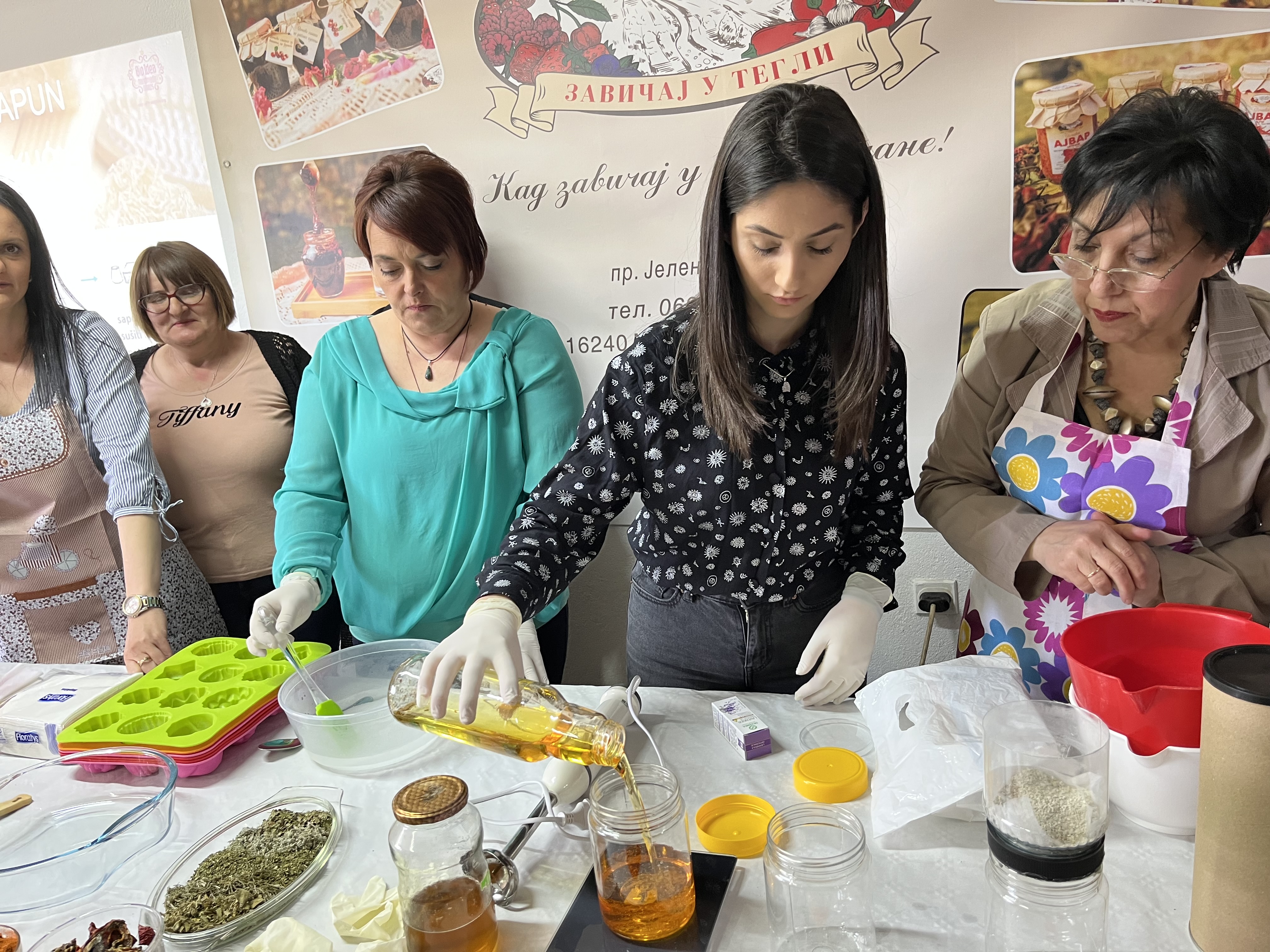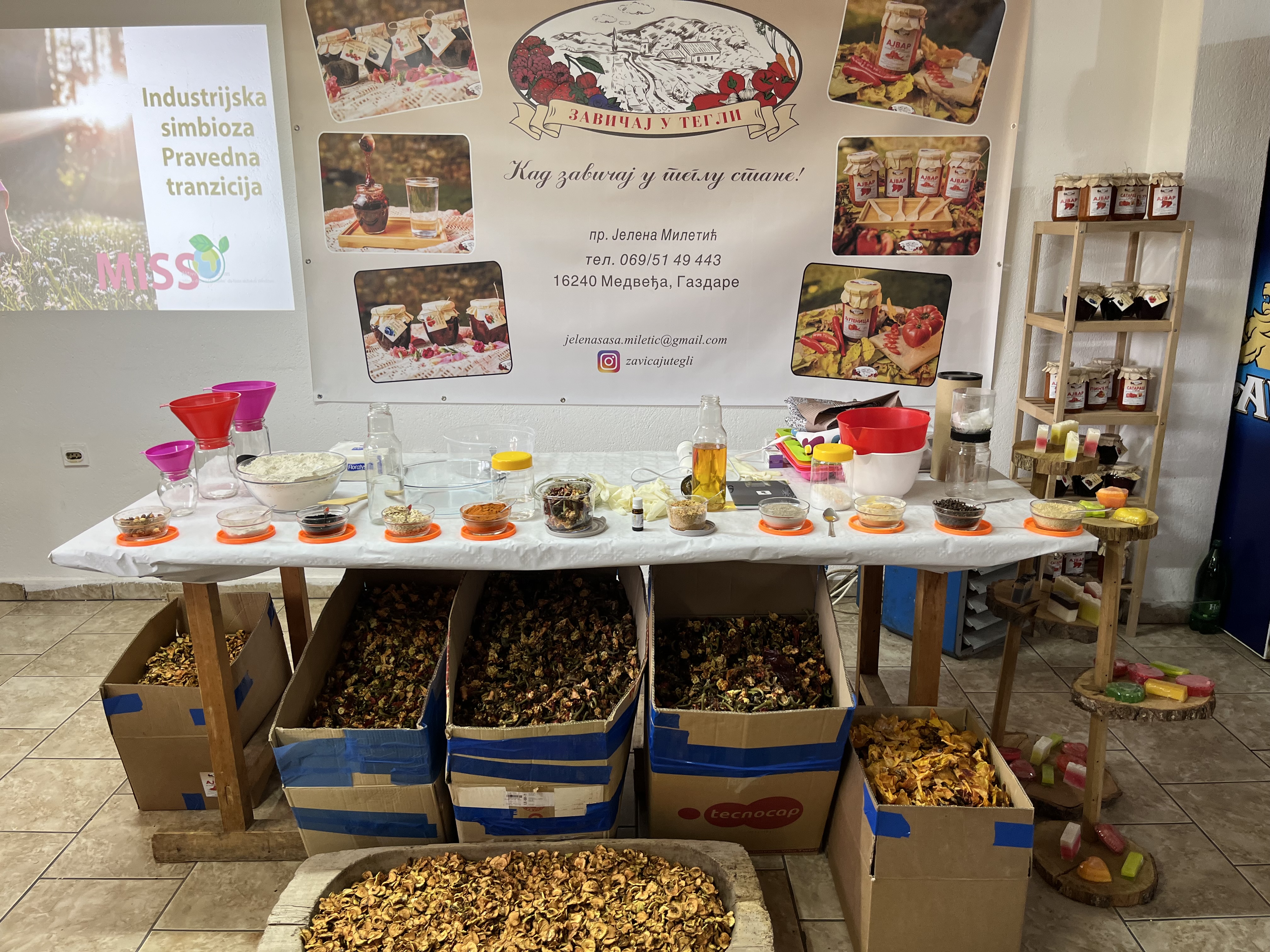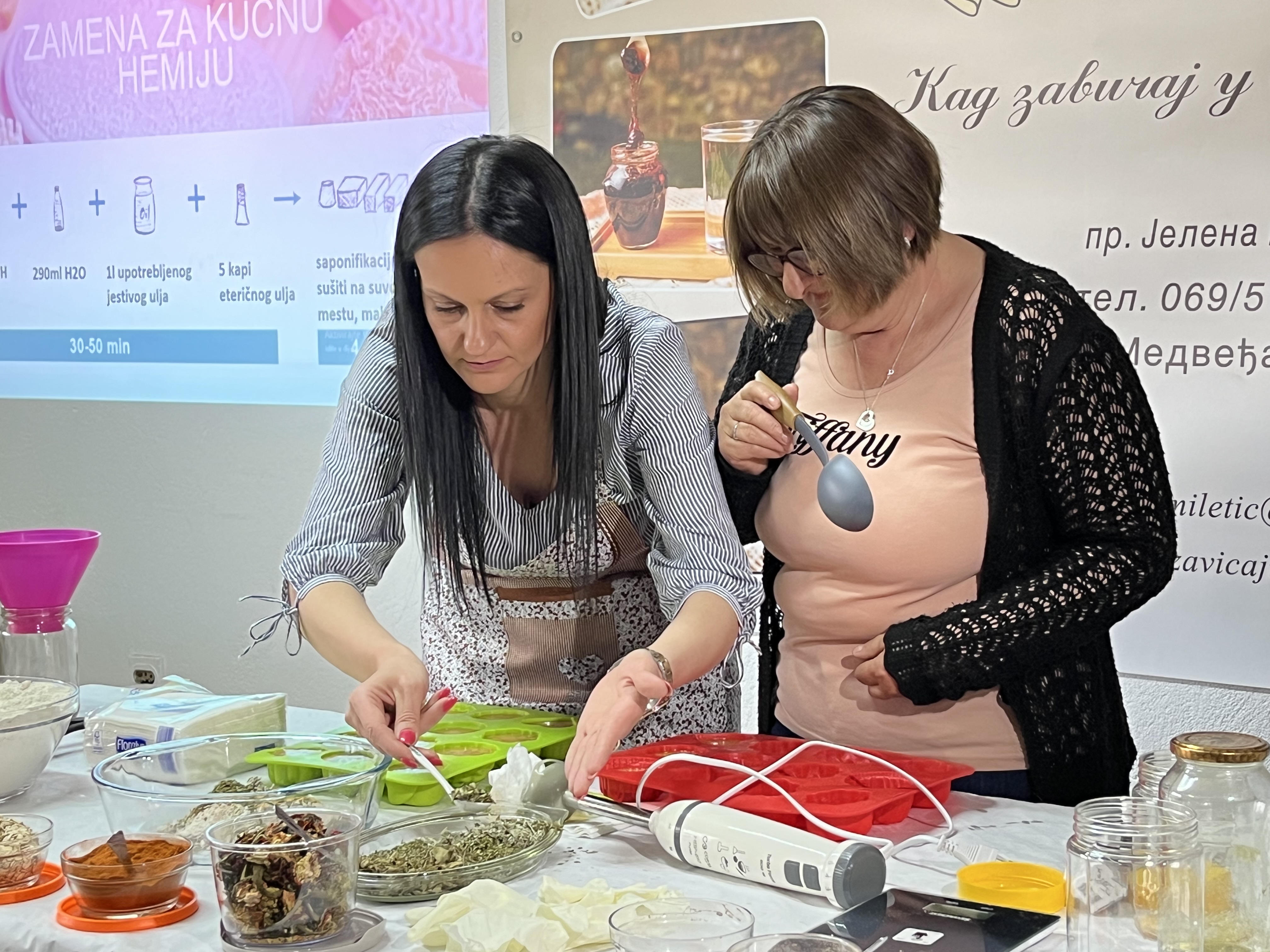Cosmetics made of Leftover Ajvar Peppers
October 5, 2023

The idea to to use leftover ajvar long peppers to make soaps and bio facial masks is among the 16 innovative solutions to accelerate the green transition of the economy and society that were awarded European Union financial support within the ‘EU for Green Agenda in Serbia’ initiative.
Up to one kilogram of waste made of seeds, stems and other parts of sweet peppers are left over after making a kilogram of traditional ajvar spread. As much as 21,000 tonnes of this bio waste is left over during ajvar making season in the South-Eastern Serbian Jablanica district, and it usually ends up on illegal dump sites.
Medveđa-based women entrepreneur workshop making home-made ajvar ‘Home Country in a Jar’ (Zavičaj u tegli) came up with a way to use this waste for making new products – solid soaps and dry bio facial masks. They are implementing this venture together with Bio Idea association and the Institute of General and Physical Chemistry, with support from the ‘EU for Green Agenda in Serbia’ initiative.

In addition to the waste issue, the seasonal nature of the work leading to lack of activity and income sources during the winter months is an additional challenge, as quoted by Jelena Miletić, the owner of ‘Home Country in a Jar’; she announced that soaps and masks made of leftover capsicum will be available as of November this year.
– As a young female entrepreneur, mother of two schoolchildren and a rural household owner, I was faced with the need to find a sustainable business solution throughout the year. With this goal in mind I joined the ‘Bio Idea Soaps’ social franchise, a women’s association engaged in making natural cosmetics and soaps. My intention was to make soaps and natural cosmetics outside of the ajvar making season and place these products in the nearby Sijarinska Spa – Jelena says.
Each new franchise member receives a customised business plan that involves innovative solutions to enhance their business. The ‘Bio Idea Soaps’ team, made of experts including Sanida Klarić, the president of the association, supports new franchise members, while simultaneously contributing to the development of the entire network and communities they operate in. The franchise and training are free, with the proviso that new members help spread the network and help other women in their communities.

Sanida Klarić highlights the idea is founded on natural principles, since there is no waste in nature; any leftovers of natural processes serve another purpose. Similarly, ‘industrial symbiosis’ utilises ‘waste’ from one type of manufacturing (e.g. fruits and vegetables) as raw material for another manufacturing process (making natural cosmetics and soaps). Apart from reducing bio-waste on illegal dumpsites and diversifying income generation for rural households, this approach also contributes to reducing harmful greenhouse gas emissions and combating climate change.
– We believe it’s very important that women recognise their interest in treating bio waste at the point of origin, with tiny and simple tweaks in the manufacturing process, Sanida Klarić says, adding that the concept is applicable not only on peppers, but also on other raw materials like apricots and rosehip.
The ‘EU for Green Agenda in Serbia’ provides training for 100 women in South Eastern Serbian rural households, with the goal of their economic empowerment. Training participants will learn how to make natural soaps and cosmetics, enhance their digital skills and acquire basic entrepreneurial skills, and familiarise themselves with best practice examples in reducing and treating bio waste.
The new Challenge for Innovative Solutions for the Green Transition was announced in February this year and will remain open until the end of 2026, with the goal of supporting innovative solutions in all five areas of the Green Agenda for the Western Balkans.
The ‘EU for Green Agenda in Serbia’ project, technically and financially supported by the European Union and implemented – in partnership with the Ministry of Environmental Protection – by UNDP, in cooperation with the Embassy of Sweden and the European Investment Bank (EIB), with additional funding provided by Governments of Sweden, Switzerland, and Serbia.

 Locations
Locations